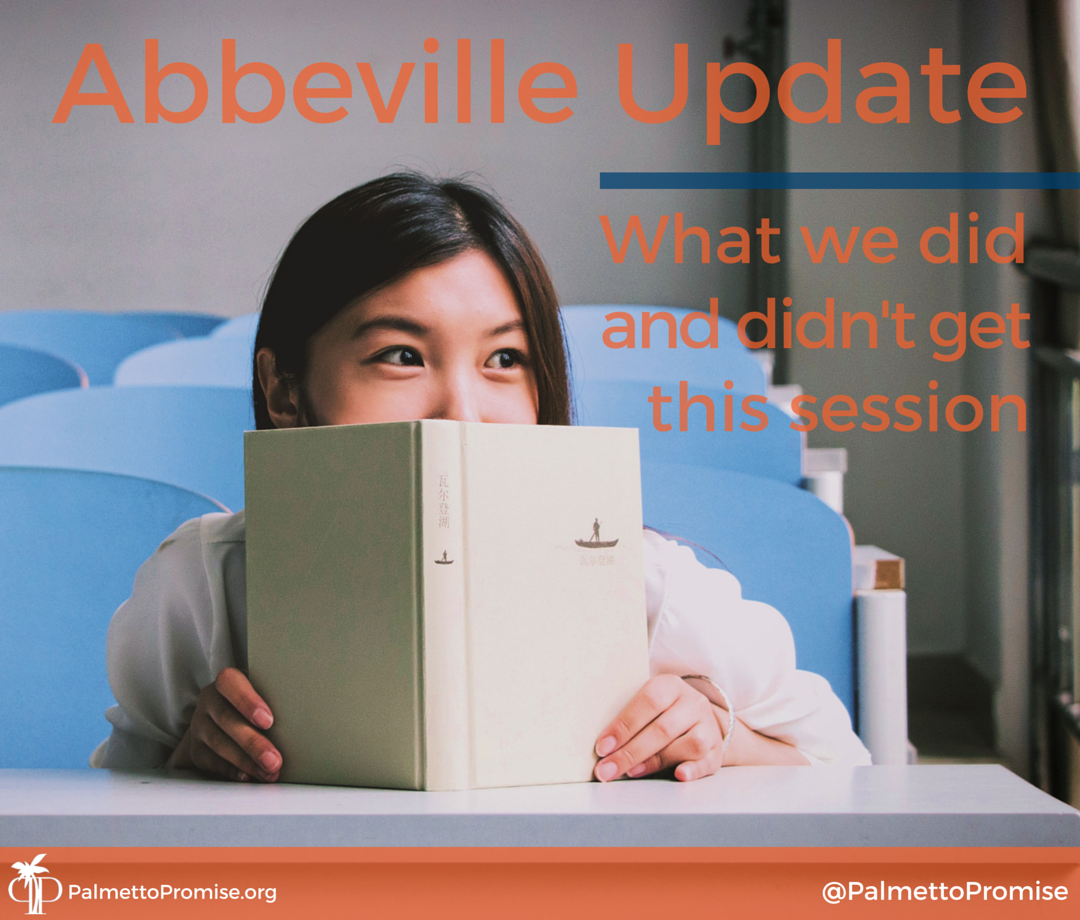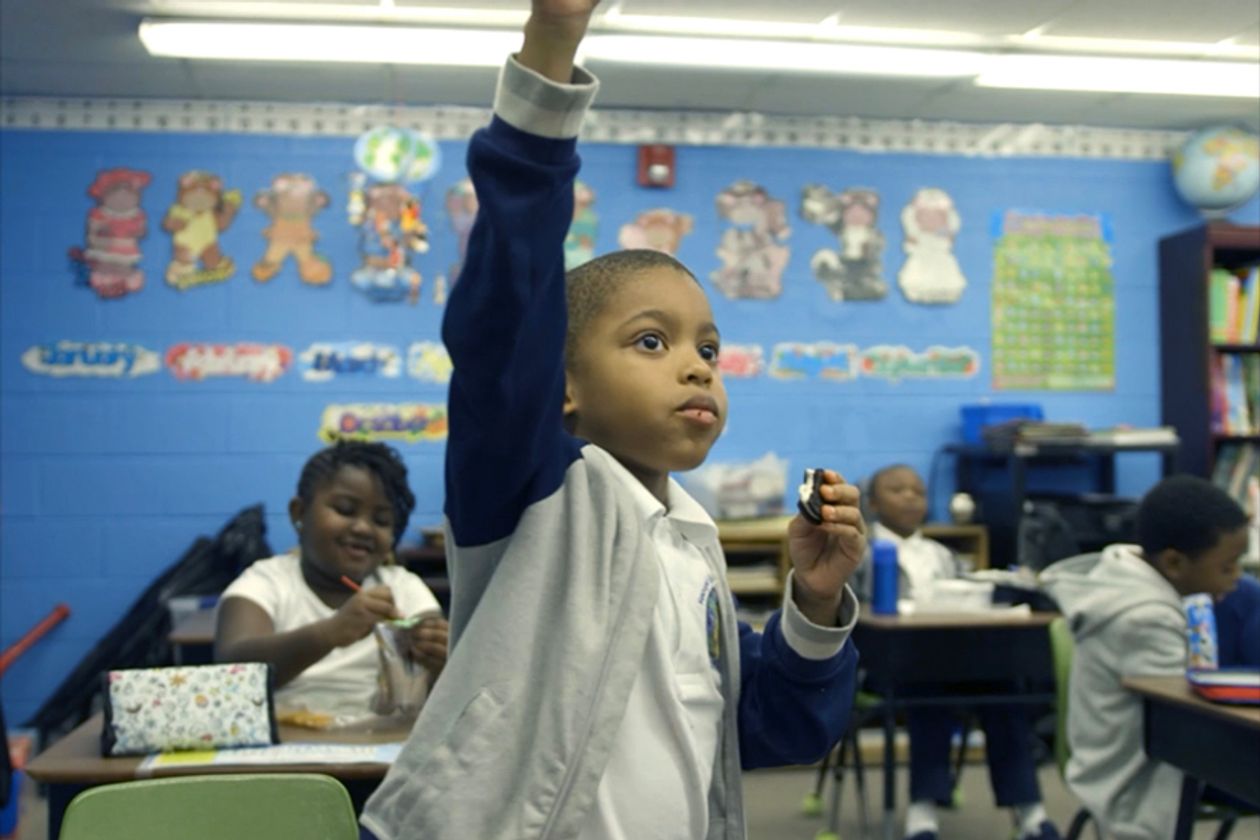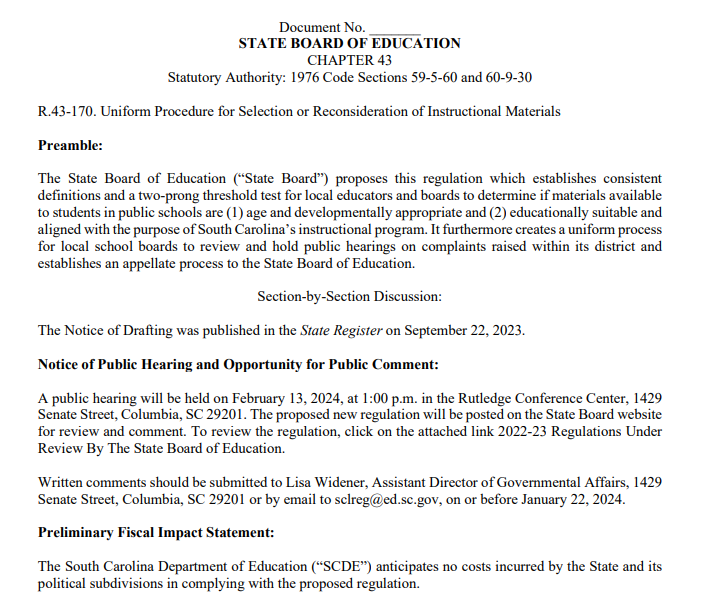Abbeville: A Post-Session Update

Dr. Oran Smith
Anyone concerned with preparing Palmetto State students for a productive life beyond high school should continue to watch the Abbeville school equity case very closely.
Here at Palmetto Promise, we have done just that, driving the debate about Abbeville and the huge opportunity it presents, particularly after the State Supreme Court demanded its ruling be obeyed.
Here’s a post-session update in the form of a question: after nearly two years of legal ping pong, multiple task forces and legislative committee deliberation, what has been the substantive, strategic, legislative response to Abbeville?
Answer? Not much.
According to the official record, since the Abbeville ruling, 206 pieces of legislation concerned with education were introduced in the General Assembly and 28 were passed into law.
Of the 28, few were, to use the buzz word of the day, transformative. There were laws related to school nutrition, sports eligibility, school board prayers, HPV vaccines, CPR instruction, teaching contract deadlines, teacher evaluation privacy, snow day closings, rights of adult students with disabilities, and school start dates. There was also local legislation related to funding, bonding and advisory councils.
The legislature also extended the deadline for developing the state Reading Proficiency Plan, extended the deadline for completion of the First Steps to School Readiness Study, essentially dropped high school exit exams, and exempted the State Department of Education from certain procurement standards for choosing an assessments (testing) provider.
So, what was accomplished in the 2015-2016 South Carolina General Assembly that will create more educational opportunities for more South Carolina kids, particularly those in economically disadvantaged areas of the Palmetto State?
We were pleased to see a few reforms: a renewed commitment to the Education Credit for Exceptional Needs Children (ECENC), literacy coaches as a part of Read to Succeed, and agreement that the founding principles of the nation and the body of knowledge required for American citizenship is worth incorporating into the K-12 curriculum. We were also glad to see a few small lifelines tossed out to the state’s charter schools both in governance and in serving students with educational disadvantages.
What We Got
As for substantive legislation to address the needs of rural school districts, here is what we got:
- Another list of goals. H.4936 lists broad educational goals for the state’s public schools, “the opportunity to learn one of a number of foreign languages, and have offerings in science, technology, engineering, mathematics, arts, and social sciences that afford them the knowledge needed to be successful.”
- Another survey and another study. H.4938 instructs the State Department of Education to survey college students majoring in education about their willingness to serve rural and economically challenged school districts and conduct other teacher recruitment research. The study is an assessment of school facilities in the state. At $1.5 million, it should be comprehensive.
- Another new committee. H.4939 sets up a new study committee to look for obsolete statutes, assess federal education requirements, and develop a system to provide assistance to districts on finances, professional development of teachers, administrators and school boards.
- Another new office. H.4940 sets up a new Office of Transformation to provide technical assistance to underperforming schools and school districts.
What We Didn’t Get
Where to start?
- No substantive help for Charters. Charter schools did not receive the statutory or funding assistance they need to reach their full potential.
- No incentives for good teaching. Teachers who are exceptional at what they do and teachers who need to frankly look at other career opportunities will continue to be paid the same.
- No Education Finance Act reforms. There was no effort to use our existing EFA law to send more dollars to the classrooms of our schools.
- No Buildings. The legislature agreed on a study, but the Senate sat on a bill to provide $200 million to make rural schools safe and positive environments for learning.
- No Public School Choice. Senator Wes Hayes departed the Senate without seeing attendance lines erased so that families can choose the best public school for their child.
- No Course Catalog. One of the most frustrating aspects of course delivery in South Carolina is the continued failure to recognize the dawn of the Information Age. While the world—and Louisiana [sic]—turns to technology to access the best teaching available, South Carolina has only dipped a toe in the water with VirtualSC. VirtualSC barely scratches the surface of what is possible.
Persistence
It was Calvin Coolidge who famously said: “Nothing in the world can take the place of persistence.” In fact I think he also said that “Persistence and determination alone are omnipotent. The slogan Press On! has solved and always will solve the problems of the human race.”
Our opportunity gap will not be closed overnight. We must Press On!




